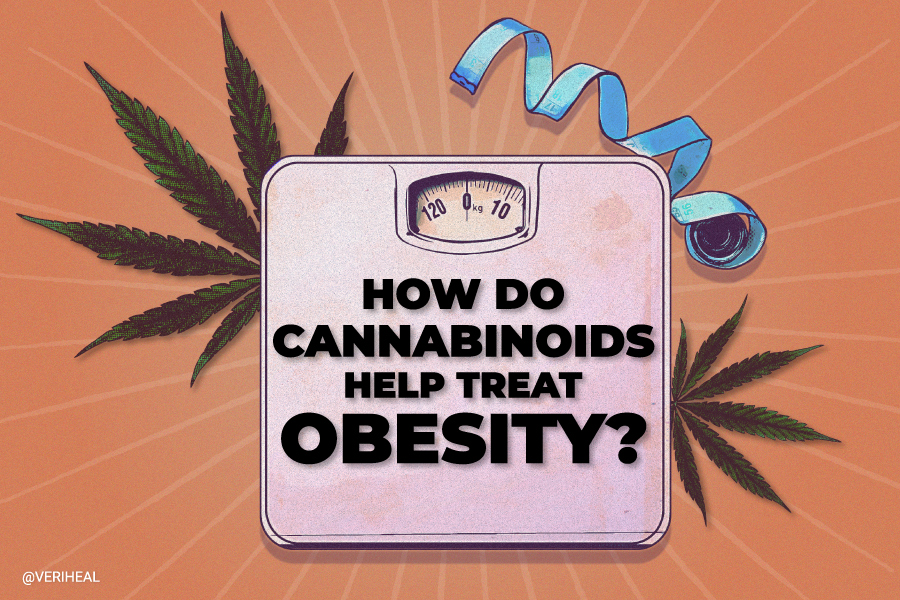When a case of the munchies arises after consuming cannabis, the plant is almost always the primary culprit. However, in spite of its reputation as a hunger-enhancer, a University of Toronto researcher begs to differ.
Although cannabis has been proven to stimulate appetite in cases of anorexia and cachexia (wasting syndrome), Justin Matheson feels the plant may produce quite the opposite effect. So much so that he believes cannabis may even work as an herbal remedy for patients who suffer from obesity—a condition that, as estimated by the World Health Organization (WHO), kills almost 3 million people around the world every year.
In 2020, Matheson earned a Ph.D. from the Temerty Faculty of Medicine’s department of pharmacology and toxicology. He also plans on participating in a post-doctoral research fellowship in the Translational Addiction Research Laboratory at the Center for Addiction and Mental Health.
“On the surface, the research seems a bit paradoxical,” he said. “But what my supervisor [Professor Bernard Le Foll, chair of addiction psychiatry in the Temerty Faculty of Medicine] and others have found is that people who use cannabis regularly actually have lower BMI, lower risk of obesity, and a lower risk of diabetes then people who don’t use cannabis.”
The postdoctoral research fellow was one of the first members of the Toronto Cannabis and Cannabinoid Research Consortium (TC3), which is described as an “interdisciplinary network that brings together researchers and trainees engaged in cannabis & cannabinoid research” on the group’s official Twitter page.
The Involvement of Cannabinoid Receptors in Cases of Obesity
Embedded within the human body is the endocannabinoid system (ECS), an expansive network of cellular receptors and chemical signals that play an integral role in central nervous system (CNS) development. The ECS is renowned for regulating a wide range of metabolic processes, including energy expenditure, mood, and sleep.
Two primary cannabinoid receptors—CB1 and CB2—can be found in the ECS, as well as their endogenous ligands and enzymes. The CB1 receptor is renowned for regulating appetite and energy homeostasis. Interestingly, when CB1 activation is blocked, the chances of obesity are reduced. For this reason, many scientists are looking into the potential of using CB1 antagonists to attenuate diet-induced obesity (DIO) and associated inflammation.
Why You Should Get Your Medical Marijuana Card
Veriheal has satisfied millions of patients nationwide by giving them access to these benefits
- Larger purchase limits
- Peace of mind
- Enhanced legal protection
- Access to higher potency strains
- Save up to 25% on cannabis purchases
- Skip the line at the dispensary
In the past, rimonabant (an inverse agonist that depresses CB1 receptor activity) demonstrated promise for promoting weight loss in obese people. However, the anti-obesity drug was eliminated from the global market in 2008 due to adverse psychiatric effects.
It’s important to note that while the forthcoming study is unlikely to cover this particular subject area, cannabinoids may prompt fat browning. A separate study found that CBD contributed to “browning” in white fat cells, a specific type of cell that tends to build up in obese patients.
Brown fat, otherwise known as “brown adipose tissue,” is a unique type of body fat that breaks down fat molecules and blood sugar (glucose) to create heat and help sustain body temperature. Although most of our fat is white fat, cold temperatures tend to stimulate brown fat. Consequently, changes occur in the metabolism, which is closely linked to weight control.
About the Forthcoming Study into Cannabis for Obesity
Rather than using THC-rich cannabis—THC is the main cannabis compound renowned for triggering feelings of hunger in cannabis consumers—the researchers will investigate whether or not nabilone, a man-made form of cannabis often used to treat chemotherapy-induced nausea, can reduce obesity in adults. Although the structural composition is slightly different, the effects of nabilone are very similar to THC.
This synthetic cannabinoid drug will be put to the test in a randomized controlled trial involving 60 people between the ages of 25 and 45 with weight problems. Each study subject will be given either a high/low dose of orally consumable nabilone or a placebo.
Extending over 12 weeks, the study will see participants consume nabilone on a daily basis. Within that time frame, patient body weight and various other measures will be assessed by Matheson and his fellow researchers to determine the adverse effects, if any, of nabilone.
Aside from the obesity aspect, the researchers also plan on assessing each study subject’s brain activity at a baseline level, prior to treatment, and after the 12-week trial is complete. Mainly, the team will pinpoint neural response variations when subjects are exposed to food images throughout treatment.
Participants have already been recruited for the research effort, which should be finalized over a two-year period.
Author, Share & Comments















